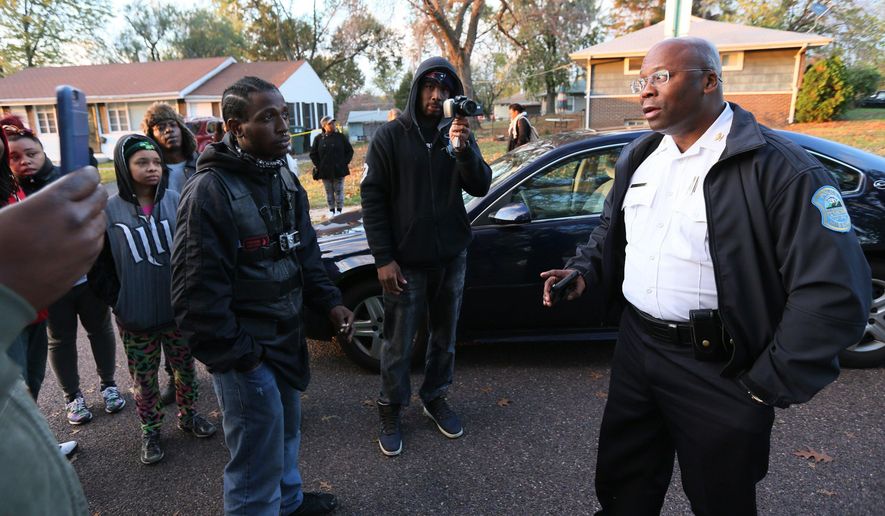The head of the U.S. Drug Enforcement Administration said Wednesday that law enforcement officers nationwide are policing less aggressively, because of some high-profile racially-charged incidents and the explosion of videotaped encounters.
Acting Administrator Chuck Rosenberg became the latest police official to agree that there has been a so-called “Ferguson effect,” a controversial assessment made most prominently by FBI Director James Comey.
“I think there is something to it. I think he’s was spot on,” Mr. Rosenberg said. “I’ve heard the same thing and I think it’s worth talking about. I don’t know whether it’s going to turn out to be right or wrong.”
Mr. Rosenberg said during a briefing Wednesday at the DEA’s headquarters that it’s too soon to draw any conclusions about whether reported reluctance by police officers is at all linked with crime spikes that some large cities across the U.S. have reported this year.
Mr. Comey addressed the “Ferguson effect” theory that increased attention on police could be making officers less proactive and embolden criminals in two speeches late last month, including at the University of Chicago Law School and before the International Association of Chiefs of Police
“I don’t know whether that explains it entirely, but I do have a strong sense that some part of the explanation is a chill wind that has blown through American law enforcement over the last year,” Mr. Comey said to the law school audience, acknowledging that no data yet exists that could prove or disprove the theory.
SEE ALSO: Police fear ‘YouTube effect’ affecting work, contributing to rise in violent crime
While considering the potential impact of the “Ferguson effect,” Mr. Rosenberg said he does not believe that it has affected his own federal agents in part because they are not first responders to emergencies.
“We’re not the ones going into houses to domestic assaults at 3 in the morning,” he said. “But do we hear that from some of the departments with whom we work? Absolutely.”
During the wide-ranging media briefing, Mr. Rosenberg also said he was concerned over the skyrocketing use of heroin in the U.S.; expressed trepidation over a lack of resources available to inmates being released early from prison after serving time for drug crimes; and called it “ludicrous” for those seeking to legalize marijuana to label it as medicine.
Though Mr. Rosenberg noted that the DEA’s 2015 National Drug Threat Assessment found that law enforcement agencies rank methamphetamine as the drug that most contributes to violent crime, he said heroin has overtaken meth as the drug that represents the greatest threat.
“In terms of what’s killing our people, it’s [controlled prescription drugs] and heroin,” he said, referencing drug overdoses.
More than 46,000 people died of drug overdoses in 2013, the most recent year for which data was available. About half those deaths were linked to prescription drugs and another 8,000 were linked to heroin, Mr. Rosenberg said. And while heroin users aren’t particularly violent, turf wars between gangs distributing the drug may have raised concern among law enforcement officials as they try to grapple with crime spikes in several major cities.
Also a concern is the Obama administration’s early release this week of some 6,000 inmates from federal prisons, and whether an adequate level of resources will be available to them to ensure they do not fall back into a life of crime and drug use.
“I worry if that we suddenly deinstitutionalize a whole bunch of people, are there some other institutions to step up into the breach and give them the services and care they’re going to need? Because, what happens if we don’t?” Mr. Rosenberg said. “That’s what worries me.”
The DEA administrator went on to acknowledge that some extracts of marijuana have shown some potential promise to treat illnesses, including childhood epilepsy, but said that shouldn’t be construed to mean that smoking marijuana is safe.
“We can have an intellectually honest debate about whether or not we want to legalize something that is bad and dangerous, but don’t call it medicine. That’s a joke,” he said.
• Andrea Noble can be reached at anoble@washingtontimes.com.




Please read our comment policy before commenting.